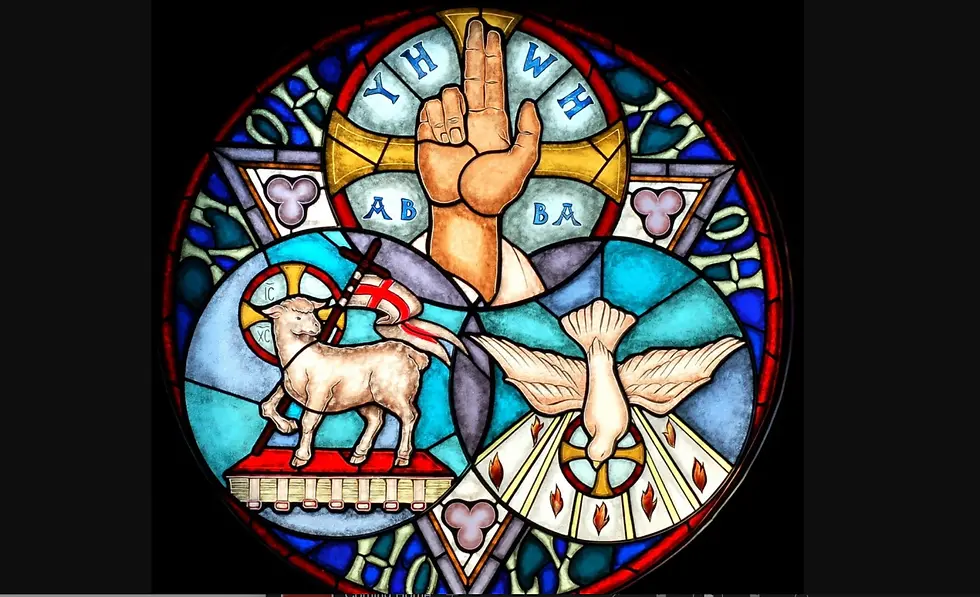“See what great love the Father has lavished on us, that we should be called children of God! And that is what we are!”
- 1 John 3:1 -
Many years ago, when Beth and I had been teaching in Asia for a while, one of our students eventually felt safe enough to reveal a deeply personal and painful secret. She was in tears and shaking when she said: “I’m not actually the child of my parents.” When her parents could not conceive, they secretly arranged to adopt someone else’s unwanted newborn. In our student’s culture, a family bloodline is so crucial to one’s identity that it can be seen as shameful to be childless or raised by someone who is not your biological parents.
We told her that our family included dearly loved, adopted children. We also explained our Christian view of adoption based on what the Bible teaches. These truths both amazed and comforted her. Would she rather be raised by parents who didn’t want her, or by parents who had longed for years to have a child? Her adoptive parents treated her very well, but she’d never truly considered the joy she had fulfilled in them. What's more, the biblical view of our adoption in Christ really opened her heart to consider the boundless love of God.
In addition to our adopted daughter Eva’s December birthday, our family celebrates May 21 as Eva’s “gotcha day.” On that day in 1997, two years of frustrating paperwork and seemingly endless waiting ended, and our family of three finally became four. That’s also when I began paying more attention to what the Bible teaches about our adoption in Christ. Theologians have written whole books on the subject, so allow me a few paragraphs.
In Greek, adoption is huio-thesia (child+make), or literally to make someone your child. The word appears just four times in the New Testament, but this crucial concept underlies each mention of God as our Father and believers as His children. God could have ‘merely’ rescued us from sin and death, but He did far more than that when He adopted us. Salvation saves us from Hell, but adoption makes Heaven our home, and Heaven’s King our Father! Our justification by faith is a legal procedure, but adoption goes beyond the legal to the intimately, relationally personal.

My wife endured eight hours of physical labor for our first child, and I endured two years of logistical labor (bureaucratic red tape, paperwork, paying fees, and waiting in countless long lines) for our second. Children enter families either by birth or by adoption, yet Jesus experienced both. Mary bore Him, then Joseph adopted Him. While it wasn’t a complex legal adoption, it was clearly a practical one, for in Luke 3:22-23, the Son of God is called the ‘son of Joseph.’ Likewise, Christians are spiritually born and adopted. When we surrender our lives to the lordship of Jesus, we are both born again of the Spirit (John 3:3-8) and adopted into God’s family (John 1:12-13).
Parents who long for a child initiate adoptions out of need. Yet God needs nothing. Like many families, Beth and I (and our first daughter) felt incomplete before Eva arrived. Yet God is perfectly complete in Himself. Each Person of the Trinity loves the other Persons flawlessly and infinitely, so creating and adopting us met no need in God. He has never needed us in any way. If He needed us, His salvation of His children would not be totally motivated by grace. Therefore we adore God for the grace He poured out by drawing us into His family.
What may be most remarkable about adoption is that Father, Son and Holy Spirit bring fallen persons into the intimate fellowship they already share. They don’t merely allow it—they initiate and complete it. God sent Jesus to rescue us; Jesus willingly laid down His life to justify us; the Holy Spirit convicted us of sin and gave us new life. This only scratches the surface of their salvation work. Plus none of it was due to any worthiness in us. Our Triune God did all this while we were still His enemies (Rom. 5:10)! Imagine adopting a child who hates you.

In Galatians, Paul details the Trinity’s roles in our adoption: ‘Because you are sons, God sent the Spirit of His Son into our hearts, the Spirit who calls out, “Abba, Father”’ (4:6). In this one verse we see all three Persons of the Godhead actualizing adoption. Amazingly, God enables and welcomes us to call Him “Abba”—the Aramaic term of endearment for Daddy or Papa—exactly what Jesus called the Father in Mark 14:36.
Note that when Paul uses the word ‘sons,’ he is not speaking only of male children. After all, ‘there is neither Jew nor Gentile, neither slave nor free, nor is there male and female, for you are all one in Christ Jesus.’ (Gal. 3:28). Rather Paul emphasizes that like male children in the Middle East (and in many other lands), all God’s children, both male and female, are heirs who enjoy the traditionally male privileges of inheritance.
In the Stebbins family, our daughters are our heirs. When Beth and I die, whatever assets we have will be passed on to them. Scripture teaches that we are now already inheriting many of the blessings promised to Abraham, because ‘if you belong to Christ, then you are Abraham’s offspring, and heirs according to the promise’ (Gal. 3:29). What's more, we are now ‘heirs of God and co-heirs with Christ’ (Rom. 8:17), and as God’s children we will inherit God’s assets much like Jesus will. But what exactly are those assets? While we can’t yet totally understand all this means, Jesus says in Luke 12:32 that our Father will be delighted to give us the kingdom! Talk about an inheritance!
After His resurrection, in John 20:17, Jesus calls believers His ‘brothers,’ while still distinguishing our relationship with the Father from His relationship with the Father. We are not divine, so we should certainly expect some differences. Yet the benefits of our adoption into Christ are already many. Because He is our Father, God listens to us, watches over and protects us, loves and tenderly cares for us, corrects us, disciplines us, forgives us, guides us, and meets all of our needs. Thus Jesus says: “do not worry, saying, ‘What shall we eat?’ or ‘What shall we drink?’ or ‘What shall we wear?’ … your heavenly Father knows that you need them” (Matt. 6:31-32). Jesus could have said: “My Father knows,” but He chose to say, “your Father knows,” showing He does not grudgingly share His Father with us.

Here and now, just as with human adoptions, there are obligations entailed with becoming someone’s child. The Bible says we must know, love, serve, obey, and imitate our Father—and we should love and serve His other children. We may also have to suffer, but never alone, for He promises never to leave or forsake us.
Yet our obligations pale in comparison to our myriad benefits. Morally and legally, Eva can expect her parents to care for her throughout her childhood and (due to her special needs) even throughout adulthood. God promises to care for His children forever! Even better than what we enjoy now is our someday home. Before Eva arrived in our house, Beth and I prepared a room for her. Jesus has gone to prepare a place for us in Heaven, so that God can make His home with us (John 14:2-3, 23). Once there, we will enjoy perfect fellowship with countless siblings! But best of all is the One adopting us, as it is ultimately God who makes the Good News infinitely good. We will see Him as He is (1 John 3:2; Rev. 22:4), we will know that we are perfectly loved, and then all will be well.
So aren’t you glad that you’re adopted?
All Scripture quotations are from the New International Version

Comments